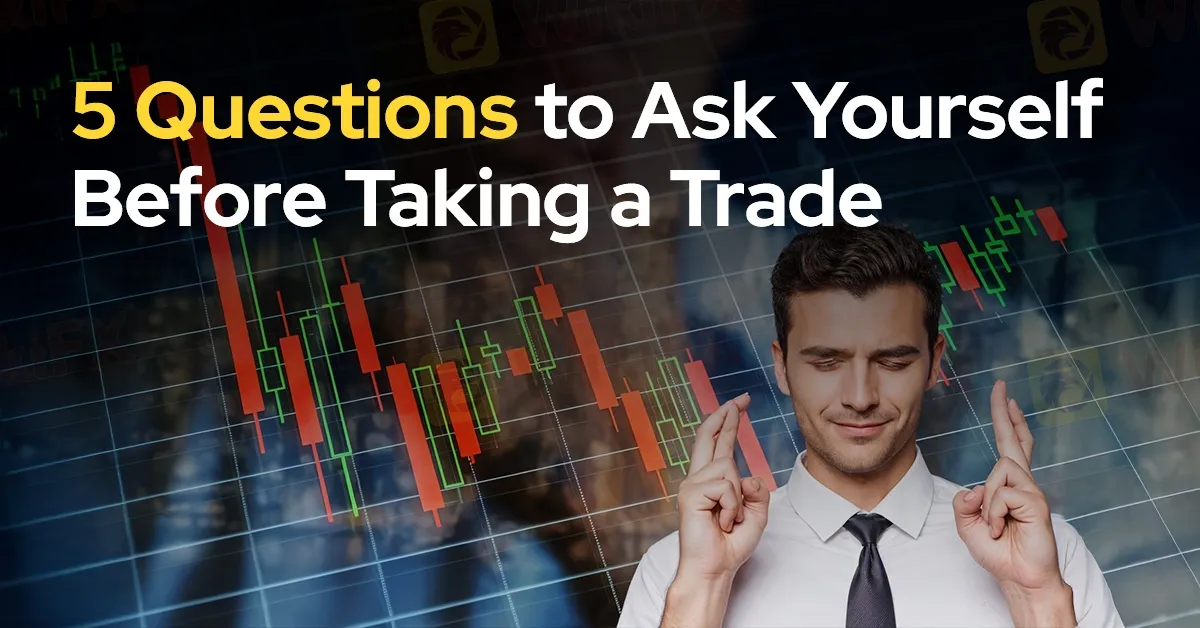简体中文
繁體中文
English
Pусский
日本語
ภาษาไทย
Tiếng Việt
Bahasa Indonesia
Español
हिन्दी
Filippiiniläinen
Français
Deutsch
Português
Türkçe
한국어
العربية
5 Questions to Ask Yourself Before Taking a Trade
abstrak:Before executing any trade, traders should pause and ask themselves critical questions to ensure they are making rational and well-informed decisions. Here are five questions to help you reflect on your strategy, manage risk, and control emotions before entering the market.

The allure of trading lies in its potential for financial gains, but the reality is that successful trading demands more than intuition or luck. It requires discipline, careful planning, and emotional control. Before executing any trade, traders should pause and ask themselves critical questions to ensure they are making rational and well-informed decisions. Here are five questions to help you reflect on your strategy, manage risk, and control emotions before entering the market.
1. Do I Have a Clear Trading Plan?
Every trade should be guided by a well-defined plan. Ask yourself if you have identified entry and exit points, set stop-loss and take-profit levels, and determined your position size. A clear trading plan helps eliminate impulsive decisions and provides structure. Without a plan, you are more likely to act on emotions, which can lead to unnecessary losses. A disciplined trader always follows their strategy, regardless of market noise.
2. Am I Prepared for the Risk Involved?
Trading is inherently risky, and no trade is guaranteed to succeed. Consider whether you are willing to accept the potential loss and how it fits within your overall risk management strategy. Experts recommend risking no more than 1-2% of your trading capital on a single trade. Ensure that the trade aligns with your risk tolerance and financial goals. Remember, trading is about preserving capital as much as it is about making profits.
3. What is My Emotional State Right Now?
Emotions are one of the biggest obstacles to consistent trading success. Before entering a trade, evaluate your mental and emotional state. Are you feeling stressed, overconfident, or desperate to recover from previous losses? Trading while emotionally unstable can lead to rash decisions and cloud your judgement. Take time to centre yourself and approach the market with a calm and focused mindset.
4. Have I Analysed the Market Thoroughly?
A hasty trade often stems from inadequate research. Reflect on whether you have conducted a thorough market analysis and checked for relevant economic or geopolitical events that could influence price movements. Understanding market conditions, trends, and technical indicators is crucial. Avoid relying on hearsay or impulsively acting on speculation. A well-researched trade is more likely to yield favourable outcomes.
5. What is My Exit Strategy?
Many traders focus solely on when to enter the market but fail to plan their exit. Ask yourself if you have a clear strategy for both winning and losing scenarios. Knowing when to exit a trade prevents you from holding onto losing positions for too long or cutting winning trades prematurely. An exit plan protects you from making decisions driven by greed or fear.

Trading requires patience, discipline, and a commitment to learning from both successes and failures. Rushing into trades without proper preparation can lead to costly mistakes. By asking yourself these five questions, you can approach the market with greater confidence and minimise emotional or impulsive actions.
Remember, trading is a marathon, not a sprint. Focusing on long-term consistency rather than short-term gains will pave the way for a more sustainable and successful trading journey.

Disclaimer:
Ang mga pananaw sa artikulong ito ay kumakatawan lamang sa mga personal na pananaw ng may-akda at hindi bumubuo ng payo sa pamumuhunan para sa platform na ito. Ang platform na ito ay hindi ginagarantiyahan ang kawastuhan, pagkakumpleto at pagiging maagap na impormasyon ng artikulo, o mananagot din para sa anumang pagkawala na sanhi ng paggamit o pag-asa ng impormasyon ng artikulo.
Broker ng WikiFX
Exchange Rate


